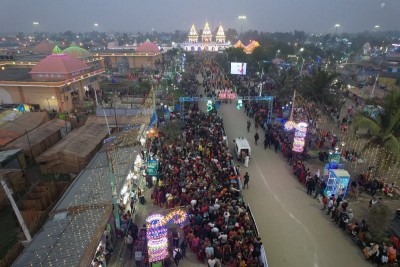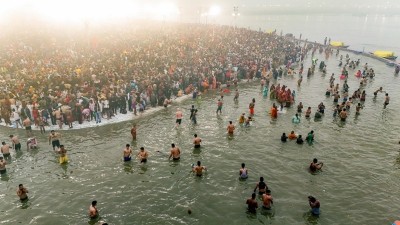 Facebook
Facebook
'Facebook cannot be compelled to answer issues on law and order': Supreme Court on Delhi's assembly's notice
New Delhi/IBNS: The Supreme Court has allowed Facebook to remain silent on questions on the issues of law and order which are the domain of the Central government while asking the social media giant to appear before the Delhi Assembly panel in 2020 riots probe, media reports said.
An NDTV report said the court underscored that the Delhi Assembly committee has the "right to seek information on any matter related to peace and harmony without encroaching (the) domain of the central laws."
A three-judge bench of Justices Sanjay Kishan Kaul, Dinesh Maheshwari and Hrishikesh Roy issued the ruling in the case after a petition was filed by Ajit Mohan, Vice President of Facebook, India, said the report.
Mohan had approached the court challenging the notice issued to him by the panel investigating the Delhi riots.
He had sought the court's directive over Delhi assembly's notice that asked him to appear before it in connection with the investigation, stressing that police and public order in the national capital come under the centre's purview, and he holds the right to remain silent, the report stated.
The report informed that the Delhi HC made some sharp remarks, insisting that "Delhi Assembly Panel cannot don the role of (a) prosecuting agency and direct the filing of (a) chargesheet. The statements made by the assembly panel about making Facebook a co-accused in the chargesheet are outside its scope. The statements are hardly conducive to the fairness of the investigation."
The court ruled that "Facebook officials can choose to not answer questions as they appear before the panel", the report further said.
The state assembly had "no power to issue notice, and Information Technology and laws relating to intermediaries fall within the domain of parliament", Mohan was backed by the Centre when the Delhi Assembly argued that he had appeared before a parliamentary panel.
"Social media platforms have the power and potential to influence people across the border. Debates on these platforms, like Facebook, have the potential to polarise the society and less informed individuals may not verify the information and take it as gospel of truth," the court said, pointing out the role of social media, the report quoted.
The Supreme Court bench noted that the technological age has produced digital platforms and "these are uncontrollable at times."
The apex court's ruling was in connection with Delhi assembly's probe related to clashes between groups supporting the new citizenship law and those against it in north east Delhi that killed 50 people last year in February.
Support Our Journalism
We cannot do without you.. your contribution supports unbiased journalism
IBNS is not driven by any ism- not wokeism, not racism, not skewed secularism, not hyper right-wing or left liberal ideals, nor by any hardline religious beliefs or hyper nationalism. We want to serve you good old objective news, as they are. We do not judge or preach. We let people decide for themselves. We only try to present factual and well-sourced news.







